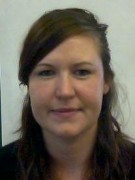 Here Eimear Fagan updates us on an ERDP Development Grant project that was funded in 2015.
Here Eimear Fagan updates us on an ERDP Development Grant project that was funded in 2015.
PeerWise is a free online quizzing platform that allows students to author and answer multiple choice questions (MCQs), rate the quality of other students’ contributions and discuss content. It provides an opportunity for self- and peer-assessment and incorporates aspects of active learning. Research indicates that PeerWise may improve academic performance but there is little research into the benefits for medical students. PeerWise was introduced to MBBS students in the first semester of the 2014/2015 academic year and was highly utilised. There was particularly high usage by Stage 4 students, who produced a bank of 188 high quality questions over Semester 1, which were collectively answered a total of 34,569 times. End of year feedback suggests that some students feel that the use of PeerWise has impacted upon their academic performance, however this and any other learning benefits of engagement remain to be explored.
The aim of this study is to gain insight into the value of PeerWise as an educational and development tool. We have 3 specific research questions:
- To determine whether PeerWise positively enhances the academic performance of Stage 4 MBBS students.
- To determine what specific aspects of PeerWise (e.g. authoring, answering questions, commenting) most impacts academic performance.
- To assess which elements of PeerWise students feel most contribute to their learning.
PeerWise records a vast array of data such as the number of questions authored, the number of questions answered and the proportion of questions answered correctly. Data automatically generated by the PeerWise website, along with academic performance data from the Stage 4 exam is currently being analysed to yield insights into any effects of PeerWise on academic performance. An online questionnaire aimed to investigate diversity of viewpoint on the benefits of PeerWise has been completed by 174 respondents (56% response rate of those students that used PeerWise). This data has informed the selection of a sample of participants to be interviewed in a semi-structured group interview which will take place this April. This interview will capture information on the barriers and facilitators to engagement with educational tools. Data will be transcribed and thematic analysis undertaken.
Quantitative data capture is complete and analysis is underway. We hope that this study will provide us with the necessary information to confidently promote use of PeerWise to cultivate deeper learning in MBBS students. This resource has the potential to be integrated into curriculum design in a wide range of subjects. Qualitative data generation and analysis will be complete by June 2016. The knowledge attained regarding engagement with this online tool will be applicable to a range of educational tools (including online tools) used both within medical education and in the Higher Education learning sector in general.
Project Team: Clare Guilding, Eimear Fagan, Michael Atkinson,
Stephanie Butler, Jane Stewart
